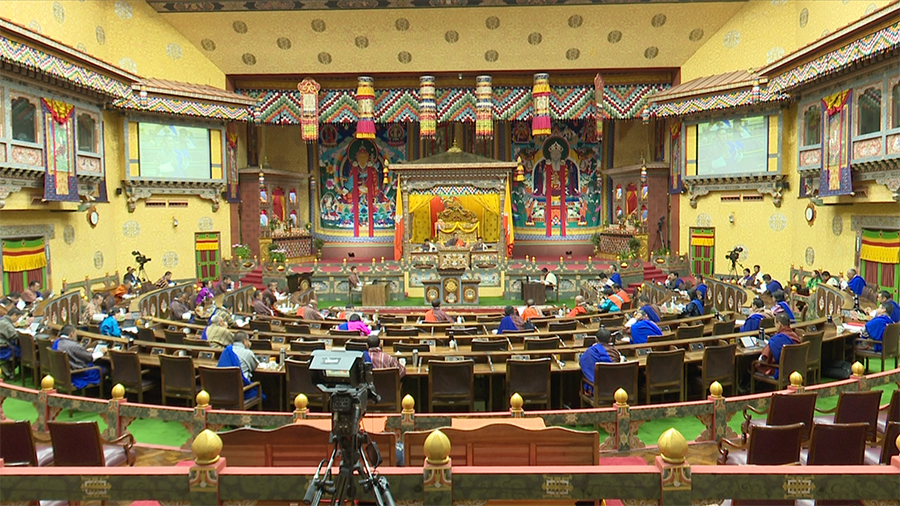
Concerns were raised regarding inflation, the slow growth of the agriculture sector and the mounting national debt as the Annual Budget Appropriation Bill for Fiscal Year 2023-2024 was deliberated at the National Assembly today. The government unveiled a national budget of Nu 85.5bn for the Financial Year, 2023 to 2024 to build stronger institutions through strategic reforms while ensuring a sustainable fiscal path and smooth transition.
As the National Assembly convened to discuss the Annual Budget Appropriation Bill for the upcoming financial year and the Supplementary Budget Bill for the current financial year, concerns regarding several pressing economic issues were raised by the members of parliament.
“With the pay revision, inflation will be on the rise. I wonder what is government’s plans and measures are to avoid these problems in the coming future,” said Khamaed-Lunana MP, Yeshey Dem.
“The main challenge that the farmers are facing currently is poor access to loans. Despite having numerous ideas, farmers of all ages are finding it very hard to start their ventures due to lack of budget,” said Khar-Yurung MP, Tshering Chhoden.
“The external debt is increasing every year. We will have to make wise decisions while spending the borrowed money and spending money only in the required areas. For example, we should allocate a budget for economic impact. We need to make such frameworks,” said Bartsham-Shongphu MP, Passang Dorji.
Likewise, the opposition leader expressed disappointment with the current proposed annual budget citing a lack of creativity, innovation and agility to tackle critical issues plaguing the nation.
Given the change in time, we are now facing various kinds of problems. Moreover, the problems that we have been facing earlier have become more severe now. That is why, we must find solutions to these changing problems through the annual budget,” said Opposition Leader, Dorji Wangdi.
In response, the minister for industry, commerce and employment said besides reducing the price of fuel, the government will closely work with the Competition and Consumer Affairs Authority in monitoring the prices of goods to address problems related to inflation.
“We have reduced the price of fuel in close collaboration with the Indian government. The prices of fuel have dropped significantly in the last few months. This will help a little in the prevention of inflation,” said Industry, Commerce and Employment Minister, Karma Dorji.
“Since we mostly experience imported or injected inflation from outside, there is good news for us. It is forecasted that inflation in India will reduce from 6.7 per cent to 4.9 per cent this year. And since we import almost 90 per cent of goods from India, this is good news for every one of us,” said Finance Minister, Namgay Tshering.
According to the Economics and Finance Committee’s review report on the bill, the committee recommended the government seriously review the non-performing State-Owned Enterprises considering the exorbitant financial deficits.
It also recommended the development of the tourism industry by continuing to improve the incentive packages and other viable strategies to attract more tourists. The committee also suggested the government reinstate credit access for small-scale private businesses and farmers.
The house will continue its deliberations on these recommendations tomorrow.
Passing Dorji & Deki Lhazom
Edited by Kipchu






